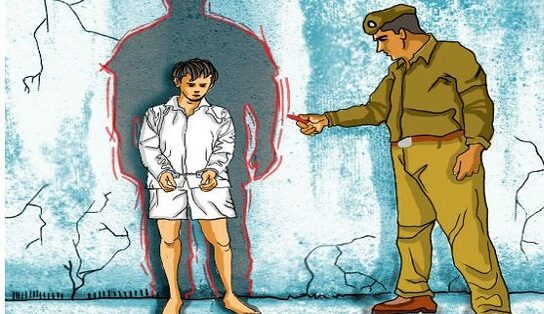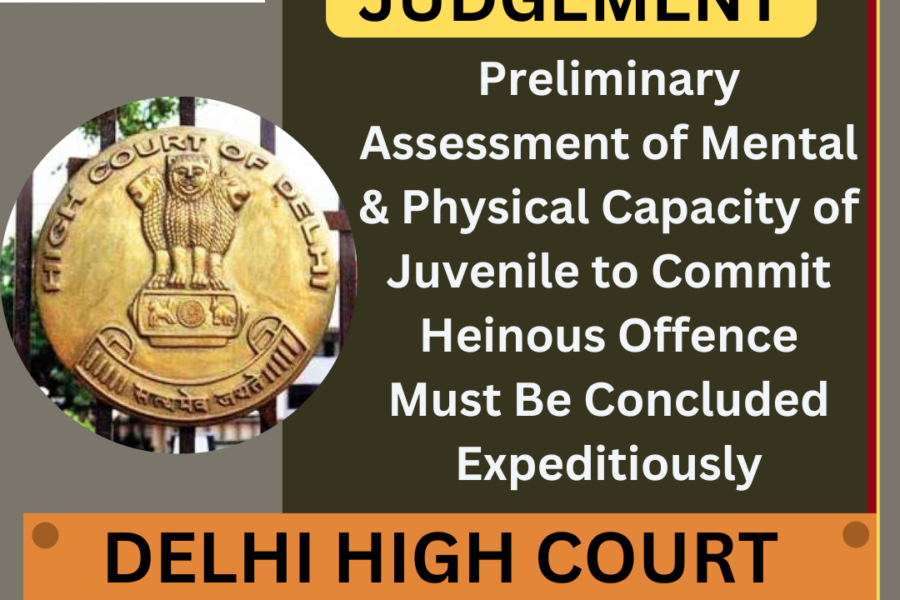Case Name: CCL M A vs STATE (NCT) OF DELHI
Case No.: Crl. Rev. P. 328/2018 & Crl. M.A. 7006/2018
Legal Framework:
- Juvenile Justice (Care and Protection of Children) Act, 2015:
- Section 2(12): Defines a “juvenile” as a person who has not completed eighteen years of age.
- Section 12: Prohibits the sentencing of juveniles to death or life imprisonment without the possibility of release.
- Section 15: Provides for the inquiry into the capacity of juveniles accused of heinous offences to understand the consequences of their actions.
- Indian Evidence Act, 1872:
- Section 112: Presumption as to the legitimacy of a child born during the continuance of a valid marriage.
- Section 114: Presumption as to the existence of certain facts.
- Section 45: Opinion of experts on questions of science, art, or foreign law.
Delhi High Court’s Ruling:
Brief Facts:
The case brought before the Delhi High Court revolved around a collection of petitions filed by minors who were facing charges for committing heinous offences under the purview of the Juvenile Justice Act. These minors contested the orders issued by the Children’s Court, which had directed them to be tried as adults for their alleged crimes.
Contentions of the Parties:
The minors, through their legal representatives, contended that they should not be tried as adults by the Children’s Court. They argued that their cases fell under the purview of the Juvenile Justice Act, which aimed to provide a specialized framework for dealing with juvenile offenders. The petitioners asserted that they were entitled to have their cases evaluated in accordance with the Act’s provisions, which included conducting preliminary assessments to determine their mental and physical capacities to understand and commit the alleged offences. They emphasized that the Children’s Court had not exercised its independent judgment or duly recorded reasons as required by the law.
The Children’s Court defended its decision to try the minors as adults by citing the gravity of the crimes they were accused of committing. The Children’s Court contended that there were substantial reasons to bypass the juvenile justice procedures and treat these cases with the seriousness that the alleged offences demanded. The court argued that the charges were heinous in nature and, therefore, necessitated a more stringent approach to deliver justice. It maintained that the minors’ actions warranted being subjected to the standard legal procedures applicable to adult offenders.
Observations by the Court:

Presiding over the case, Justice Swarana Kanta Sharma underscored the pivotal issue at hand: the treatment of juvenile offenders facing grave charges and the adherence to legal procedures set forth in the Juvenile Justice Act.
These charges warranted a comprehensive analysis of the procedures mandated by the Juvenile Justice Act, particularly focusing on the expeditious nature of preliminary assessments under Section 14.
The Juvenile Justice Boards, as the primary authorities responsible for evaluating these cases, were tasked with conducting preliminary assessments in accordance with the stipulations outlined in Section 15. These assessments encompassed evaluating the mental and physical capabilities of the juveniles in question, their capacity to comprehend the consequences of their actions, and the circumstances under which the alleged offences were committed.
Of particular importance were the provisions laid out in Section 14(3) and the proviso to Section 14(4) of the Act. These clauses underscored the necessity for promptness in handling cases of heinous offences, setting a clear timeframe for their resolution. The court noted that Section 14(3) mandated that preliminary assessments concerning heinous offences under Section 15 should be concluded within three months from the initial presentation of the child.
Additionally, the proviso to Section 14(4) allowed for the Chief Judicial Magistrate or the Chief Metropolitan Magistrate to grant an extension of time for the completion of the inquiry if deemed necessary, with such reasons duly recorded in writing.
In the context of the case, the court examined the interplay between the requirement for expeditious assessment and the potential consequences of any delays. It reiterated that delays in concluding preliminary assessments within the designated three-month period for heinous offences should not automatically render the proceedings null and void. Instead, the court advocated for a case-specific approach, evaluating the impact of such delays on a situational basis.
Justice Sharma further emphasized the dual responsibility of the State: to uphold the rights of juveniles while simultaneously fulfilling its duty to prosecute and penalize offenders in cases involving heinous crimes. The court opined that these crimes had a far-reaching impact, extending beyond individual and familial spheres to impact society at large.
The decision of the Court:
Consequently, the court remanded the cases back to the Children’s Court for the issuance of appropriate orders that aligned with the legal provisions of the Juvenile Justice Act.
Adv. Khanak Sharma

